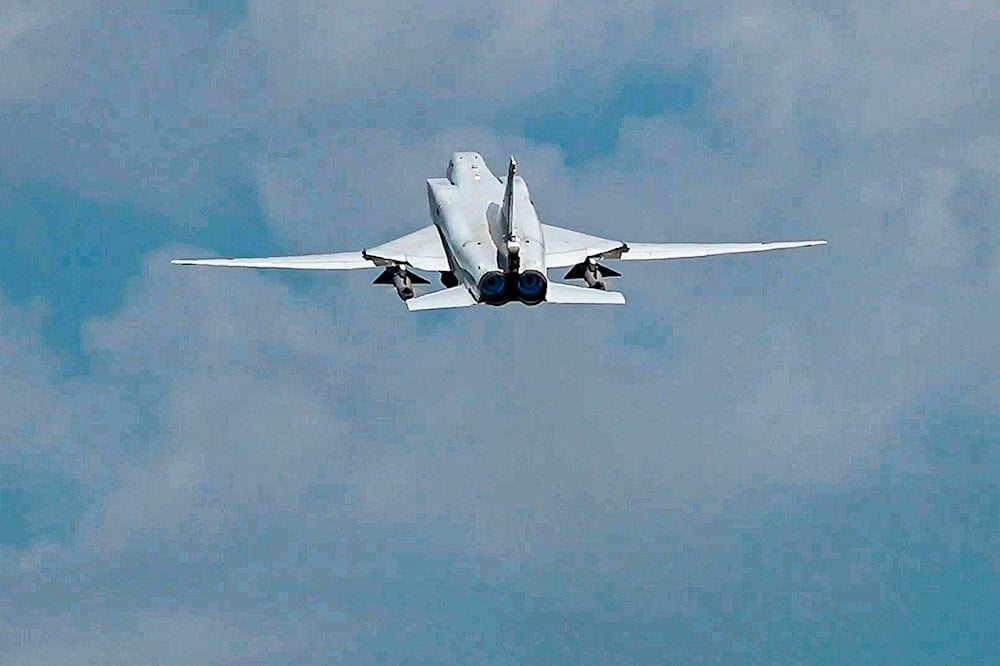FSB thwarts attempt to hijack Russian strike bomber
Russia stopped an attempted hijack of a Russian Tu-22M3 strategic bomber abroad, local media reported, citing the Federal Security Service (FSB).
-

In this photo taken from video and released by the Russian Defense Ministry Press Service, A Russian Tu-22M3 bomber is seen in flight during joint Russian-Belarusian drills on June 10, 2024. (AP)
The Russian Federal Security Service (FSB) announced on Monday that it has thwarted an attempt by Ukrainian special services, aided by NATO allies, to hijack a Russian Tu-22M3 strike bomber.
In a statement, the agency said, "The Russian FSB has prevented another attempt of the Ukrainian special services to hijack a long-range strategic bomber Tu-22M3 of the Russian aerospace forces and fly it abroad. The involvement of special services of NATO member states in the preparation and implementation of the operation has been uncovered."
Tupolev's Tu-22M3, a long-range supersonic missile carrier bomber (NATO reporting name: Backfire), is designed to destroy sea- and ground-based targets using guided missiles and aerial bombs.
According to the FSB, Ukrainian intelligence attempted to recruit a Russian military pilot, offering him a financial reward and Italian citizenship in exchange for hijacking the plane and flying it to a specified destination.
"The Russian counterintelligence received information that helped the Russian armed forces to strike a Ukrainian military airfield in Ozerne," the statement read.
Read next: FSB foils NATO-supervised Ukrainian operation to hijack Russian planes
$3 million to hijack nuclear-capable bomber
In a video shared by the FSB, the Russian military pilot targeted by Ukrainian operatives claimed he was offered $3 million to hijack a nuclear-capable strategic bomber. This sum allegedly included $1 million from the Ukrainian state-owned defense group Ukroboronprom.
📹 Russian Armed Forces pilot shares details on Ukrainian attempt to hijack Russian nuclear-capable aircraft pic.twitter.com/n5rQMl8xR6
— Sputnik (@SputnikInt) July 8, 2024
The pilot stated that the Ukrainians contacted him via Telegram, attempting to extort information on Russian warplanes, including hull numbers, technical conditions, and maintenance schedules. He also mentioned that they threatened to harm his family if he refused to set Russian aviation equipment on fire.

 2 Min Read
2 Min Read









